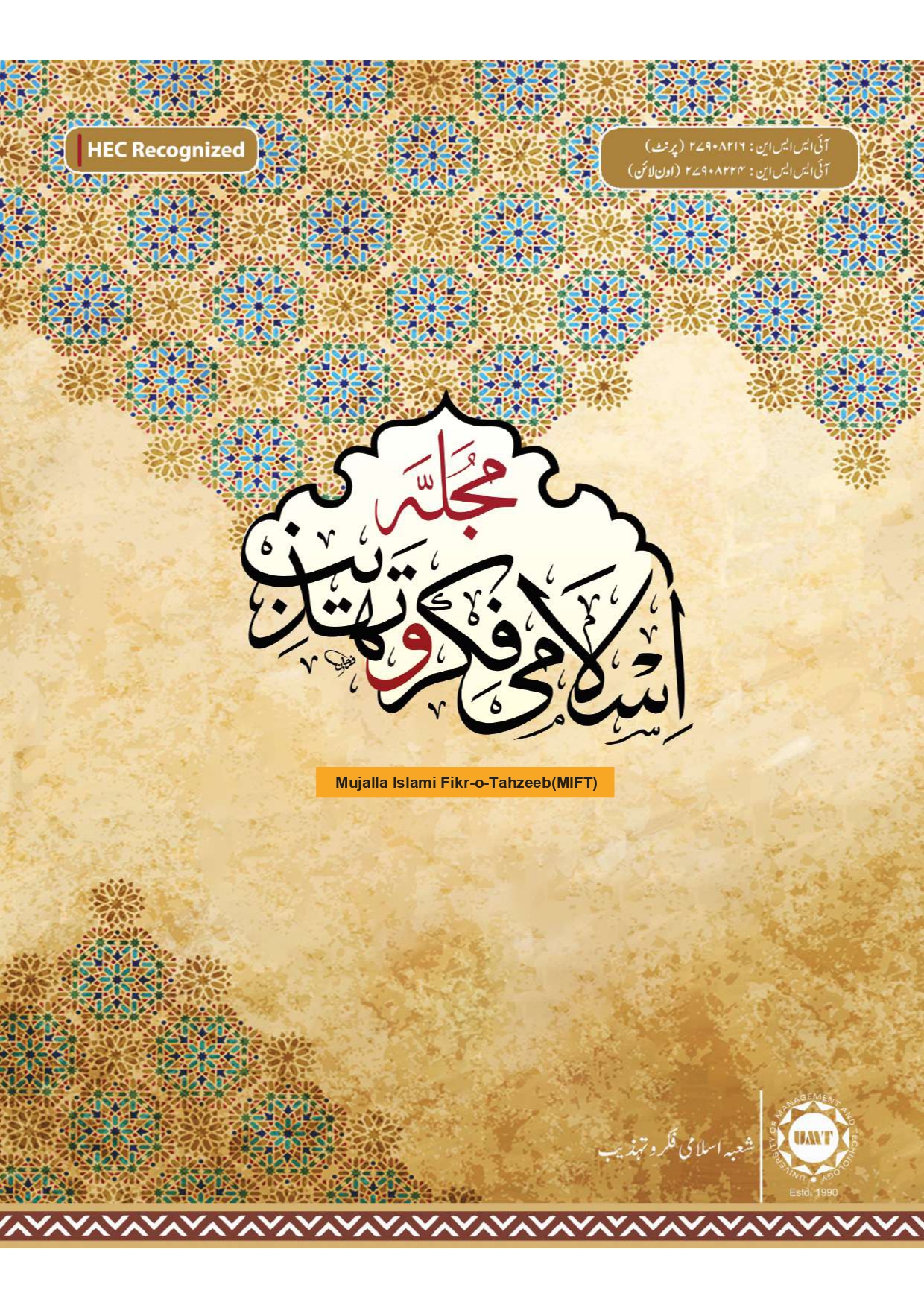رگ وید کا تجریدی دیوتا- ہرنیا گربھا- ایک مطالعہ
The Abstract Deity of the Rig Veda – Hiraṇyagarbha – A Study
Abstract
 Abstract Views: 0
Abstract Views: 0
Due to its rich mystical exegesis and philosophical depth, Hinduism often appears to encompass every variety of theological discourse. However, a focused study of its foundational scriptures—the Vedas—reveals that these texts themselves do not exhibit the monotheistic or unity centered theology characteristic of the Abrahamic faiths. In the Rigveda, widely regarded as the oldest and most authoritative layer of Vedic literature, there is no concept or term that corresponds to a singular, supreme God. Instead, Vedic texts invoke a host of devas (gods) and employ the term yajña uniformly to denote sacrificial worship offered to them. While most Vedic deities are personified and sensuous, a few—such as Hiraṇyagarbha and Prajāpati—are associated with cosmic creation and may be interpreted as abstract or formless divinities. This article offers a concise study of Hiraṇyagarbha and argues that even this “golden embryo” does not function as a uniquely supreme deity within the Vedic corpus. Through a close reading of key hymns in the Rigveda and the Atharvaveda, alongside their Brahmanical commentaries (e.g., the Śatapatha Brāhmaṇa), it demonstrates the absence of an unlimited, incorporeal, and unconditioned God. Instead, the pluralistic theology of the Vedas is confirmed by lexicographical evidence—particularly in Yāska’s Nirukta and the Nighaṇṭu—which defines deva as any being a ṛṣi addresses in praise or supplication. Although later Upanishadic layers introduce notions of inner unity, these figures emerge from cosmological processes (the “cosmic egg”) and are neither eternal nor exclusively supreme. The findings affirm that, despite Upanishadic intimations of unity, the Vedic worldview remains fundamentally polytheistic in both language and ritual practice.
Downloads
References
2. John Dowson, A Classical Dictionary of Hindu Mythology and Religion: Geography, History and Literature (London, UK: Trübner and Co., 1888), 402.
3. Atharvaveda, K.11, S.5, M.2.
4. Yāska and Lakshman Sarup, The Nighaṇṭu and the Nirukta: The Oldest Indian Treatise on Etymology, Philology and Semantics. Critically Edited from Original Manuscripts and Translated for the First Time into English, with Introduction, Exegetical and Critical Notes, Three Indexes and Eight Appendices (Delhi, India: Motilal Banarsidass, 1967), 7.15.
5. Yāska and Lakshman Sarup, The Nighaṇṭu and the Nirukta, 121.
6. A. A. Macdonell and Shadgurushishya, Katyayana’s Sarvanukramani of the Rigveda (Oxford, UK: Clarendon Press, 1881), 2.5.
7. Yāska and Lakshman Sarup, The Nighaṇṭu and the Nirukta, 7.1.
8. Ibid., 113.
9. Ibid., 7.1.
10. Monier Monier-Williams, A Sanskrit-English Dictionary Etymologically and Philologically Arranged (Delhi, India: Motilal Banarsidass, 2002), 839–840.
11. Ibid.
12. Rigveda, 1:1:4.
13. Rigveda, 1:3:10.
14. Rigveda, 1:3:11.
15. Rigveda, 1:4:7.
16. Rigveda, 1:10:4.
17. Rigveda, 1:27:13.
18. Tulsi Ram, The Hymns of Yajurveda = Yajurvedaḥ: With Original Sanskrit Text, Transliteration & Lucid English Translation (Delhi, India: Govindram Hasanand, 2011), xxvi.
19. Monier Monier-Williams, A Sanskrit-English Dictionary Etymologically and Philologically Arranged (Delhi, India: Motilal Banarsidass, 2002), 1299.
20. Ibid., 1299.
21. Rigveda, 10:121:1, 7.
22. Rigveda, 10:121:7.
23. Tulsi Ram, The Hymns of Rigveda = Rigvedaḥ: With Original Sanskrit Text, Transliteration & Lucid English Translation (Delhi, India: Govindram Hasanand, 2011), 1035.
24. Rigveda, 10:121:8; Rigveda, 10:121:10, 55.
25. Atharvaveda, 10:7:28, 41.
26. Rigveda, 10:129:3.
27. Atharvaveda, 6:1:1–10.
28. Atharvaveda, 11:6:1–9.
29. Śatapatha Brāhmaṇa (10.1.2.1–6).
Authors retain copyright and grant the journal right of first publication with the work simultaneously licensed under a Creative Commons Attribution (CC-BY) 4.0 License that allows others to share the work with an acknowledgement of the work’s authorship and initial publication in this journal.



